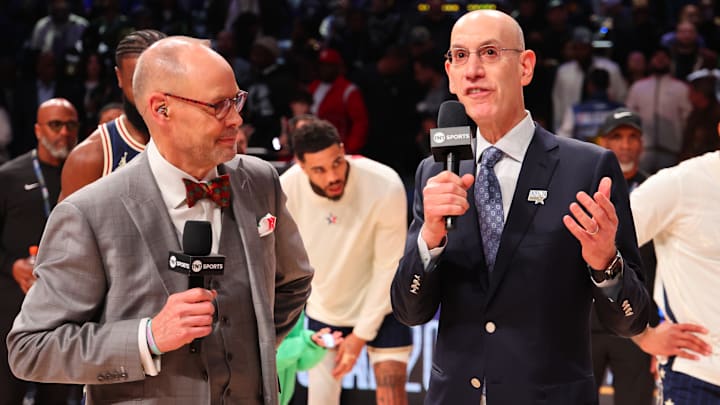3) Incentivize players to make the All-Star game more competitive
This one isn’t technically a rule, but the NBA still needs to find a way to incentivize players enough to make the All-Star game competitive again. Adam Silver has “tried” a few different things to bring back the excitement and competition that once were associated with the All-Star game, but it hasn't worked.
Players have expressed their desire to finish the exhibition game with their health intact as the leading factor in not “playing hard.” Still, a blatant lack of effort, particularly on defense, has led to the All-Star game becoming unwatchable and has pushed many fans and media members to demand the NBA remove the All-Star game altogether.
Removing the All-Star game isn’t an option, but Silver and Co. can approach this dilemma in a couple of different ways. The first one is obvious, money. Per the current collective bargaining agreement, players on the winning team each receive $50,000, and players on the losing team each receive $25,000, $900,000 total.
The league makes enough money off All-Star Weekend alone to pay these players a lot more than that. As much as Silver has complained publicly about the quality of the All-Star game, giving the participants a pay raise should be a small price to pay.
If the league continues to be cheap, or it turns out that money isn't enough to motivate the players to compete harder, the NBA can take a page out of the MLB's playbook. From 2003 to 2016, the outcome of the MLB All-Star Game determined the home-field advantage in the World Series for that season. Most of the All-Star game participants are members of teams with postseason and championship aspirations so this should be an easy and effective motivator.
